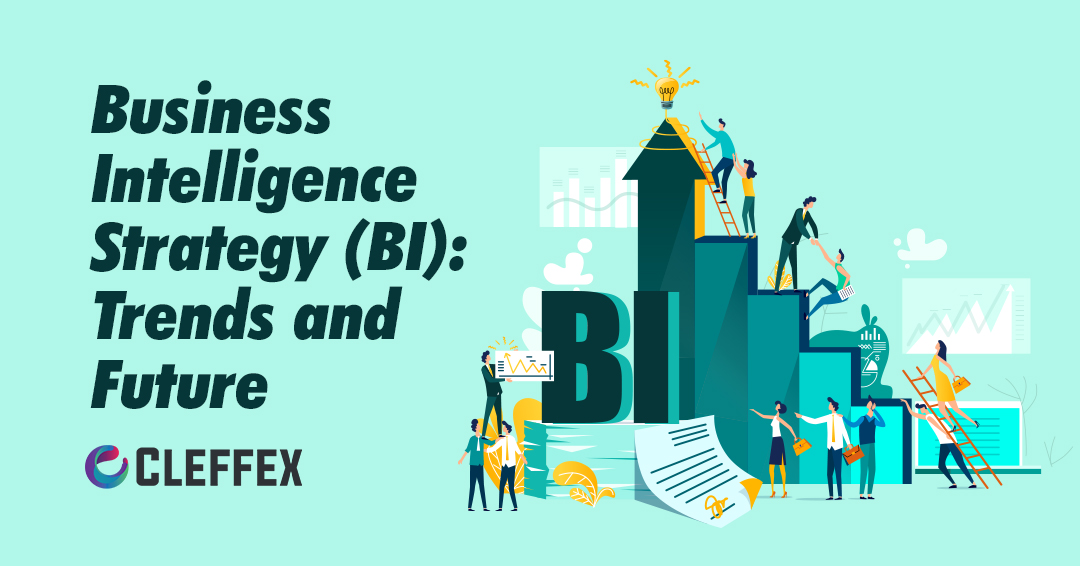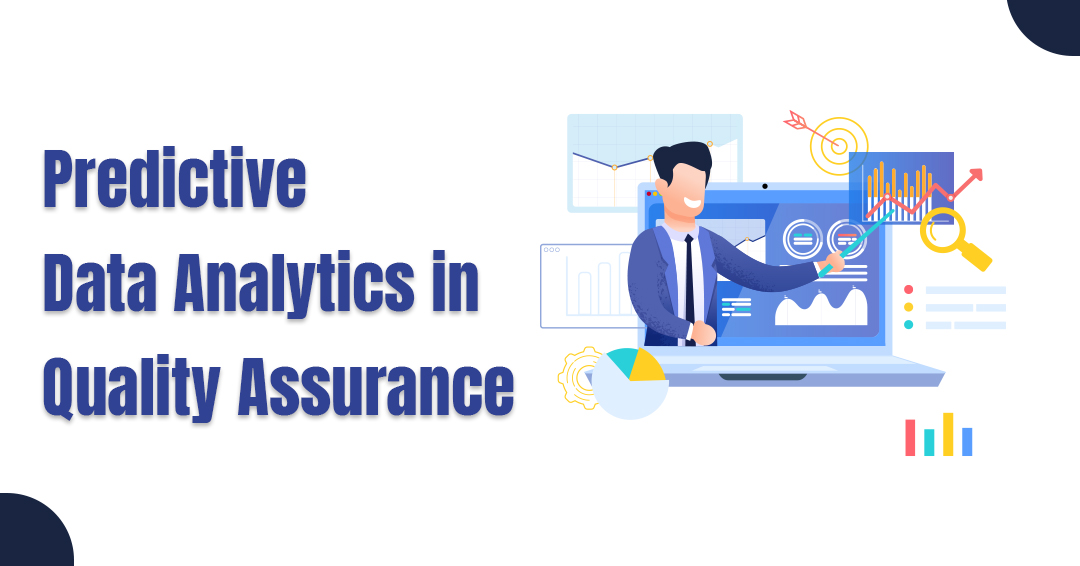A business intelligence strategy is essential when starting a new business or if you are operating an existing one. It assists you in understanding how every critical action related to your company can be interpreted by customers – either positively or negatively. So, it is vital to reach out to multiple target audiences with one just to ensure the right business traction. According to business intelligence statistics, any company using it will have significant benefits.
There are a myriad of business intelligence tools that can help you with every decision you make. It can help you meet any unexpected deadlines, analyze the services you choose to offer, plan, etc. to meet the expectations of your target audience, goals, and stakeholders. So, it is vital that you partner with an established custom software development company to build you the same.
For a complete package of the same, you need the expertise of professionals and the right business intelligence software.
Why Need a Business Intelligence Strategy?
Business intelligence (BI) or implementing a business intelligence strategy is associated with the bigger picture of the processes that run along with it. It can inform you of market demands and assist you in gathering data and developing a proper systematic process for your entire business. Better decisions can be made with the help of business intelligence software to gain a competitive advantage.
So, let’s discuss the potential benefits of implementing a BI strategy. It will also help you understand the solutions and business intelligence tools that you should consider, and which current trends you can adopt.
How to Effectively Implement a Business Intelligence Strategy
Whether used for small or medium-sized businesses, a business intelligence strategy necessitates the development of a solid roadmap. You must define –
- the goals
- stakeholders
- steps of the roadmap
- identify KPIs (key performance indicators)
- and assess the situation
Making informed strategic decisions using various business intelligence tools is critical to measuring performance, identifying competitive advantages, and understanding your customers. As a result, you will be able to benefit from business intelligence solutions. Let’s look at how BI or how using an effective business intelligence software can help you.
Benefits Offered by A Business Intelligence Strategy
1. It Saves Both Time and Money
Business intelligence tools can help you establish the necessary budget, develop an ideal plan, and identify bottlenecks. This way you will avoid wasting resources and achieve risk mitigation. You will also be able to understand how much money you must spend on business intelligence software and which features are the most expensive. Since everything is planned, you will also save time.
2. Decisions Can Be Made Faster
Real-time decision-making is possible with business intelligence software. It helps you act quickly and effectively through competitor analysis so that you can change your tactics to combat theirs.
3. Improves Communication and Collaboration
This is another benefit of using a business intelligence strategy and its various applications. Any new update, change, or other action taken by employees is communicated to all other process participants. It implies that data is kept up to date and that work, as well as your business, do not halt.
4. Boosts Revenue
The business intelligence strategy or solution you use can capably detect your sales flaws, and deficiencies, by comparing data across multiple facets. Making use of business intelligence tools can help you keep an eye out for competitors, listen to customer feedback and needs, and improve your internal and external operations. As a result of all this, you can majorly enhance your revenue aspects.
5. Ensures Data Mining and Visibility
Business intelligence tools assist you in gathering and analyzing data to gain extremely useful insights and identify trends. It can be easily represented in various forms – infographics, charts, bars, etc. along with other elements and features that provide detailed information on all required processes. As a result, the business intelligence software you select can collect, store, organize, and analyze the data you require before presenting it in a visually appealing and easy-to-understand report.
6. Enhances Overall Experience
The total experience (TX) of your company will be greatly enhanced by a business intelligence strategy, which includes customer experience (CX), employee experience (EX), user experience (UX), and multi-experience (MX). You can track KPIs and establish solid relations for employee engagement and happiness. You will understand how to act better with more information about your customer and employee preferences and needs. Considering several business intelligence tools can effectively help you in this scenario.
7. Predictive Modeling is Possible
You can easily predict future outcomes with a business intelligence strategy. This is done using a business intelligence software’s data mining, machine learning (ML), and other predictive analysis features and statistical modeling methods. They allow you to identify business threats and opportunities so that you know what to do next.
8. Identifies Popular Trends
BI encourages you to make data-driven decisions and identify trends that can lead to business optimization and evolution. This is one of the advantages of a business intelligence strategy that can have a significant impact on the future of your business.
What Are The Current Trends in Business Intelligence Strategy?
Using business intelligence tools can keep you up to pace with the current trends. You can keep track of productivity, sales, and shipments using various business intelligence software and sophisticated visualization tools available today. They have the potential to significantly improve your company’s processes. Since we started talking about business trends, let’s look at which ones are in demand right now.
1. Data Visualization Storytelling
Business intelligence tools allow intuitive visuals in conjunction with storytelling – a popular way to engage clients and help them understand critical insights. Huge blocks of text and reports with numbers and plain text are no longer effective. Although, not all business intelligence tools can proclaim visual representation and, most importantly, data storytelling. As a result, many businesses turn to software development firms to provide high-quality custom software development services that will delight any industry realm. That way you can create interactive reports or a narrative using dashboards.
2. Adoption of Mobile, Automation, and Cloud
All these features of business intelligence tools have infused the market and are widely used in various industries. As a result, users prefer the mobile version of any application or software over the desktop version. You have more flexibility when you can access dashboards and reports from anywhere and at any time. The responsiveness and features of mobile business intelligence strategy serve as the primary analytics platform, providing you with insights directly from users. Companies are increasingly migrating to cloud-based BI. Some prefer private or public clouds, while others prefer SaaS solutions.
3. Collaborative Business Intelligence
BI allows for more efficient collaboration among stakeholders and will undoubtedly aid you in successful employee communication. Machine learning systems are also included in business intelligence software to enhance the overall experience. The future of BI is thought to be a more connected system for all involved parties.
4. Natural Language Generation (NLG)
This type of artificial intelligence (AI) allows business intelligence software to generate simple answers based on the questions asked. It allows you to interact with data by asking specific questions and receiving linguistically rich descriptions of insights. Depending on the settings and technology skills you use, it can generate spoken or written responses. To make your application even more user-friendly, you can integrate it with voice-activated digital assistants.
Business Intelligence Strategy: Final Words
A business intelligence strategy can lead your business forward, optimize different processes, and ease your efforts. Business intelligence tools provide you with numerous benefits, identify various trends to follow, and increase your chances of success. It will also help you prepare for any challenges be it current or future. And make sure you implement the best BI strategy using stellar business intelligence software by partnering with a proficient custom software development company.









